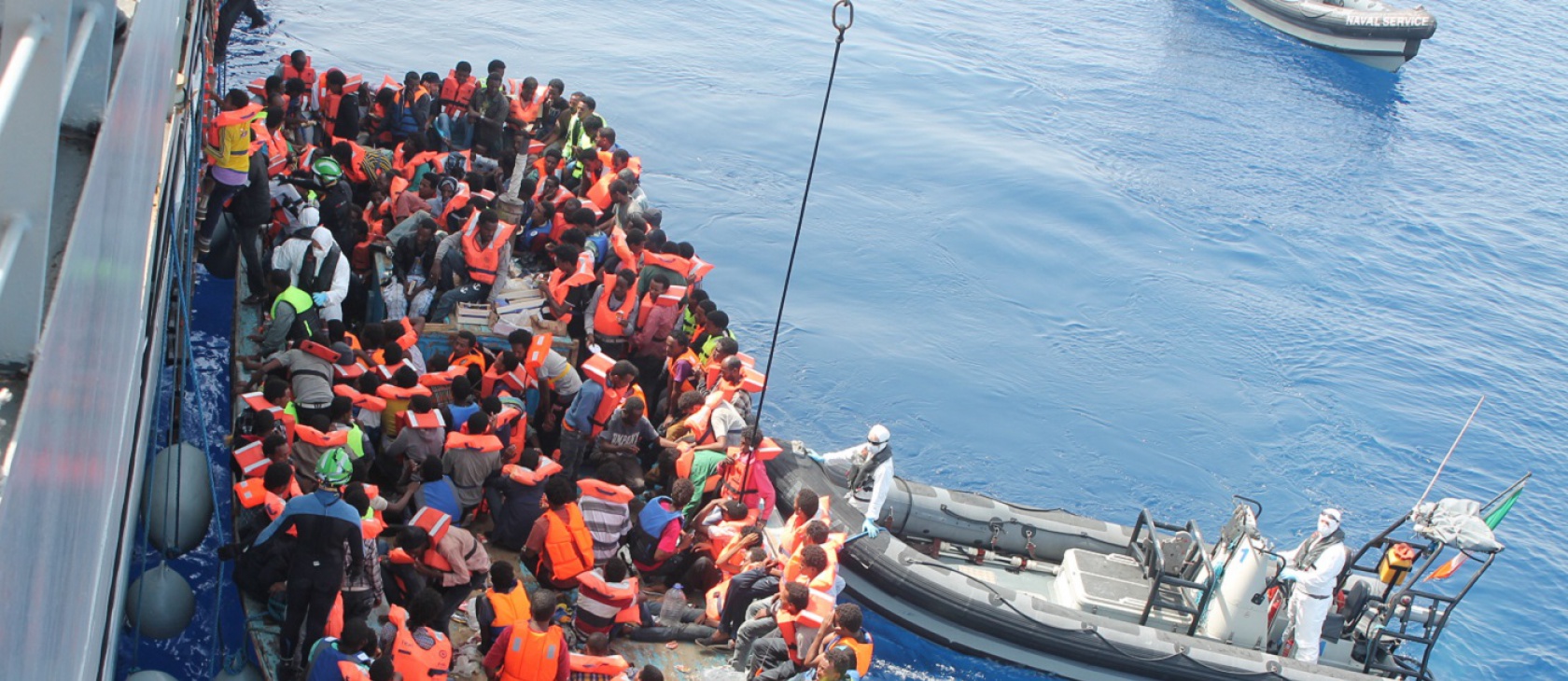Last Wednesday, the European Court of Justice rejected the “open-door” policy of German Chancellor Angela Merkel, ruling in favor of the rights of member states to deport migrants back to the countries through which they originally entered Europe. The ECJ decision has been greeted, alternately, as a setback for refugees or a triumph for the sovereignty of European states. But as the two sides exchange rhetorical barbs, it would be wise for them not to lose sight of an important point: The greatest beneficiaries of the decision are the migrants themselves, whose human dignity has been demeaned as they have become the prey of human smugglers – thanks, in no small part, to EU policy.
In August 2015, Chancellor Merkel declared that any migrant who could reach Europe was free to settle in Germany. In retrospect, that only exacerbated the refugee crisis. A record-breaking number of migrants, more than 1.3 million in all, arrived that year, with hundreds of thousands following them in the two following years. The European Union responded by drawing up a quota system, dictating from Brussels how many migrants each of the 28 EU member states were to accept. It also threatened to withhold EU structural funds if they – like Poland, Hungary, the Czech Republic, and Slovakia – refuse. Whatever the fate of EU funding, the ECJ ruled that, under the EU’s Dublin Regulation, the nation responsible for the migrant is the first one to allow entry.
After Turkey stopped the flow of refugees by land, migrants risked their lives to reach by crossing the Mediterranean Sea from Libya. It remains to be seen what can be done for Italy, which has already received more than 95,000 migrants in 2017, according to the UN, and will now have to struggle with even more displaced people being deported back to its borders.
But there can be little arguing that the top-down EU refugee policy led to an increase in human trafficking and piracy, encouraged migrants to risk their lives, and sparked a massive populist backlash across Europe. Of these, the most important and least reported is how migrants have suffered from these policies.
Starvation and human smuggling
Would-be migrants have died of starvation and thirst in the Libyan desert, where the economy, destabilized after the fall of Muammar Qaddafi, is turning from oil to a chaotic but growing human smuggling industry. The dangerous Mediterranean crossing itself is often made in unseaworthy vessels, leading to numerous drownings. The death toll of increased migration to Europe via the sea route to Italy has exceeded 2,300 this year, according to the United Nations.
Now, EU officials are acknowledging their role in this humanitarian crisis. At a press conference before the G20 Summit in Hamburg, European Council President Donald Tusk described opaquely how recent EU policy has encouraged the abuse of human dignity.
The “organized business” of “migrant smuggling” generated “$1.6 billion in Libya alone” last year, Tusk said. “These profits allow the smugglers to control some parts of the country. They also cooperate with terrorists and further undermine the stabilization in Libya.”
But most importantly, this status quo leads to the loss of “innocent lives,” he said.
Subsidiarity not only assures the sovereignty and influence of voters but, far more importantly, in this case it would prevent the unintended byproduct of compromising human dignity – whether European, Libyan, Egyptian, or Pakistani.
Pirates have taken full advantage, not only of migrants, but of European “rescuers” who save migrants from drowning en route to Europe. Such a mission may seem compassionate, but its consequences can be murderous. The pirates have used the humanitarian service as a receiving department in the dangerous and abusive business of human trafficking. One such NGO is “Sea Watch,” a highly political German organization that decries border enforcement efforts as a form of “capitulation to the right-wing populists.”
But there are signs that the deaths have inspired a change of heart, or at least focus, among even the most Europhile of politicians. At the G20 Summit, Tusk said “the main task for the EU” was to put a stop to the wave of unmanageable migration “at its source, namely in North Africa.” He further insisted the current crisis “cannot mean a wider opening of Europe’s door towards illegal migration. That is why here at the G20, I will call on all the leaders to be ruthless in their fight against smugglers.” And he demanded heightened international efforts against human trafficking, including “asset freezes and travel bans.”
“It is the very minimum that can be done on the global level,” he said, adding that if the international community failed to support such efforts, it would be “a sad proof of the hypocrisy of some of the G20 members.”
Another step that must be taken, European politicians admit, is investigating and ending any collusion between NGOs and human smugglers. The Austrian and German interior ministers recently criticized such NGOs. Austrian Interior Minister Wolfgang Sobotka went so far as to call for “legal punishments” against NGOs that claim to be helping the vulnerable but in fact “cooperate with the [human smuggling] rings” in Libyan waters by “directly taking refugees from human traffickers.”
From the cynical perspective of criminal smuggling rings, the loss of dignity and even life among migrants is of little concern. But these human lives should matter to the people of Europe and observers across the transatlantic sphere.
Subsidiarity and unintended consequences
The ECJ ruling is a victory for local sovereignty. But if the European people's case for subsidiarity were merely about getting their own way, then it would be every bit as selfish and cruel a position as its opponents imply. Contrary to stereotypes popular in Brussels, the problem is not only that Europeans see migrants as a threat to their way of life. Rather, Europeans see the open-door policymaking of the EU as a threat to the human dignity of Europeans and migrants alike.
When a centralized bureaucracy rules from on high and ignores subsidiarity, nobody wins but that central power itself – which is in no position to manage local conditions. In fact, it is often those they claim to help who suffer the worst unintended consequences.
When history books make their assessments of human misery in the early twenty-first century, those who spoke up for “the least of these” will be shown in the best light. For EU political institutions, truly protecting the suffering will mean reversing course from entrenched, remote, bureaucratic policymaking. Subsidiarity not only assures the sovereignty and influence of voters but, far more importantly, in this case it would prevent the unintended byproduct of compromising human dignity – whether European, Libyan, Egyptian, or Pakistani.
(Photo credit: Irish Defence Forces. This photo has been cropped. CC BY 2.0.)




